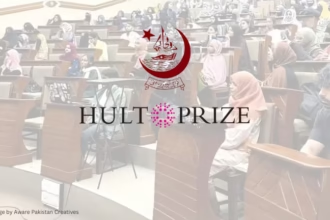In the realm of international politics, the prioritisation of economic interests over moral considerations is a lamentable reality. Recent developments within the G20 and the visit of an Israeli delegation to Saudi Arabia indicate Saudi Arabia’s intentions to strengthen diplomatic ties with both India and Israel simultaneously.

Do Saudi Arabia’s efforts to enhance bilateral relations with these countries signify a preference for economic progress over concerns about their treatment of fellow Muslims? Have the days of religious fervour among Muslim countries come to an end? Despite the harsh treatment endured by Muslims in Indian-occupied Kashmir and Palestine, Saudi Arabia is poised to establish friendly relations and bolster trade ties with them. Does this suggest a self-centred approach on Saudi Arabia’s part, or should we conduct a more in-depth analysis before drawing conclusions?
So, what motivates Saudi Arabia’s leaning towards India and Israel?
India’s Significance as a Strategic Trade Partner:
Currently, bilateral trade between India and Saudi Arabia amounts to approximately $52 billion, with both countries expressing a desire to double this figure. Indian exports have increased from $8.8 billion in 2021–22 to $10.72 billion in 2022–23, while Saudi Arabia’s exports have also grown, adding approximately $7.8 billion.
India’s Status as One of the World’s Fastest-Growing Economies:
Indian Prime Minister Narendra Modi has highlighted that both Saudi Arabia and India are among the world’s fastest-developing economies. Cooperation and partnership between the two nations are crucial for regional stability.
The West Coast Refinery Project:
The trilateral West Coast Refinery Project, involving the Abu Dhabi National Oil Company (ADNOC), ARAMCO, and various Indian companies, has received unwavering support from both India and Saudi Arabia. This project further incentivises the strengthening of ties between the two countries.
Saudi Arabia’s 2030 Vision:
Saudi Arabia’s ambitious 2030 Vision necessitates the normalisation of relations with Israel to promote cross-border trade.
The United States’ Role in Facilitating Normalisation:
For the United States, achieving normalisation between Israel and Saudi Arabia would be a significant geopolitical and geoeconomic victory. Success in brokering this regional breakthrough would bolster the United States’ position in relation to China, while failure would leave it outside of a major regional deal.
Avoiding the Fate of a Post-Oil State:
Saudi Arabia has shown a keen interest in modernising and diversifying its economy to reduce its reliance on oil production.
Saudi Arabia’s Geostrategic Importance:
Considering Saudi Arabia’s geographical development plans, opening up trade, tourism, and transit in the northern reaches of the Red Sea would benefit from closer ties with Israel and Palestine.
Economic Rivalry Between the UAE and Saudi Arabia:
Saudi Arabia aims to emulate the UAE’s approach to building healthy relations with Israel to achieve economic supremacy in the Arabian Peninsula. Improved ties with Israel would also enhance Saudi Arabia’s influence in Washington over the long term.
Taking all of these factors into account, can we truly justify Saudi Arabia’s friendly relations with India and Israel?
This situation is undoubtedly a cause for concern among other Islamic countries that have consistently advocated for the rights of Palestinians and Kashmiri Muslims, who have endured human rights abuses by Israel and India, respectively. It is disheartening to witness these aggressors receiving a friendly reception from fellow Islamic nations like the UAE, Egypt, and now Saudi Arabia.

A sense of insecurity is growing among the persecuted populations of Kashmir and Palestine due to the shift in foreign policies of Saudi Arabia and the UAE, which were once champions of the Islamic cause and supporters of the legitimate right to self-determination for these oppressed nations. This situation has also led to disappointment in other Islamic nations, especially Pakistan and Turkey, which have been steadfast in their support for the self-determination of Palestinians and Kashmiris and have consistently voiced their opposition to the atrocities committed by India and Israel.
The historical role played by Saudi Arabia in championing the rights of oppressed Muslim populations in Kashmir and Palestine is now being scrutinised.
Historians and the fraternity of Islamic countries vividly recall the strong stance taken by Islamic nations in their joint declaration at the conclusion of the second Islamic Heads of State Conference held in Lahore in 1974. The late King Faisal of Saudi Arabia played a pivotal role in advocating for the rights of the Kashmiri people in occupied Kashmir during these proceedings. Saudi Arabia’s foreign policy, as the custodian of the holiest Islamic sites, has played a crucial role in guiding the policies of the rest of the Islamic world.
It is difficult to believe that a wealthy oil-rich country with a high GDP like Saudi Arabia would be so eager to expand its economic ties with India and Israel at the expense of the oppressed people of occupied Kashmir and Palestine, who have long looked to countries like Saudi Arabia for support. The architects of Saudi Arabia’s foreign policy should not succumb to diplomatic pressure from the Jewish lobby and the West, as such a ruthless policy could have catastrophic consequences for the rights of impoverished Islamic countries and the oppressed peoples of regions like occupied Jammu and Kashmir and Palestine.
Any formal trade agreement between Saudi Arabia and India, involving such a substantial financial commitment, would be seen by the people of occupied Kashmir as a compromise on their right to self-determination and independence from India’s illegal occupation.








